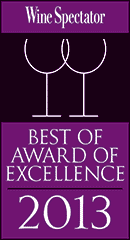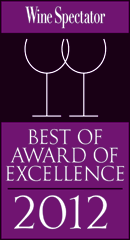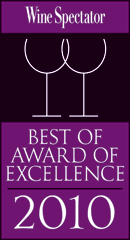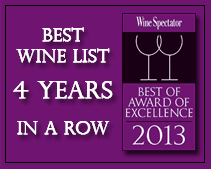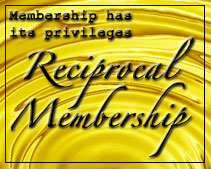Koreans Flock to the Philippines to Learn English
MANILA ― They come in their thousands every month, eager to learn what is considered as the language of some 1.8 billion people worldwide.
For South Korean students, the Philippines is now a haven as far as learning the English language is concerned.
The last five years saw the phenomenal rise of the Philippines as the prime source of English education for South Koreans.
Whether they come to the Philippines to study English or sit in front of their computers at home in Seoul and learn the correct pronunciation of English words from a teacher in Manila, South Koreans are bent on learning English as a second language as part of the globalization plan implemented by the government.
English education has been included in the curriculum of the South Korean education system from elementary level to college. President Lee Myung-bak, for instance, has made the teaching of the English language a core program of his administration.
The English education explosion in the Philippines among South Koreans was a product of ideal factors that fit together. The Philippines — ranked in the top 10 in terms of English-speaking population – has affordable education. This is coupled with its strategic distance from South Korea: Manila can be reached by plane in just four hours from Seoul.
In addition, the Philippines has a low cost of living, making it an appealing place for South Korean students to stay and live. Throw in the allure of its white-sand beaches and tropical weather and you’ll have a formula to make it a favored travel destination.
Today, hundreds of schools throughout the Philippines offer English as a Second Language (ESL) courses for foreigners, but South Koreans stand out as the leading group that comprises the majority of the ESL market in the Philippines.
The Philippine Bureau of Immigration, headed by Commissioner Marcelino Libanan, is the leading agency that issues permits to foreign students who want to study in the country.
Foreigners who want to enroll in Philippine schools are required to get either the Special Study Permit (SSP) or a Student Visa. SSPs are granted to students who want to enroll on short-term courses that last for less than one year while student visas are for those who want to take up long-term or degree courses.
Based on data provided to The Korea Times by the bureau’s student desk division ― headed by Teodulo Estrada, chief, and Adela Camtal, assistant chief ― South Koreans who were issued Special Study Permits increased by 500 percent from 2004 to 2008.
In 2004, the data showed 5,877 South Koreans were given SSPs in the Philippines. The figure increased three-fold to 17,904 in 2005.
The numbers continued to increase over the next three years. In 2006, 21,876 Koreans obtained SSPs while 27,322 got the permits in 2007. Last year, 29,155 Koreans were granted permission to study short-term courses in the country.
In total, 102,134 South Koreans studied in the Philippines from 2004 to 2008 — or an average of 20,427 students per year, or 1,702 students per month.
In addition, 13,937 South Koreans were granted student visas from 2004 to 2008. The visa allowed them to study degree courses in the Philippines.
In the last five years, South Koreans became the largest group of foreigners to study in the Philippines. The numbers continue to rise as more schools offer ESL courses.
De La Salle University, one of the Philippines’ top universities, is one of the schools accredited by the Philippine Bureau of Immigration as an English-language learning center for foreigners.
The university’s Manila campus has the Center for Language Learning (CeLL) that provides year-round short English courses. The length of each is three weeks, ranging from basic grammar to conversational English.
According to Dr. Leonisa Mojica, center director, a total of 515 Koreans enrolled at the center in 2008. From January to August this year, there were 184 Koreans who enrolled in various short English courses.
Mojica said most are college students while some are working students.
She said almost all of them have “little knowledge and can hardly speak English” when they enroll.
“At first they have difficulty speaking in English,” Mojica said.
On the average, a Korean student takes two to three English courses that take about two to three months to finish.
Afterward, Mojica said the Koreans are happy that their use of English has improved.
When asked why Koreans prefer to take English courses in the Philippines, Mojica said it’s probably because the tuition fees “are cheaper” compared to fees in other countries, plus the fact that they are appreciative of the kind of teaching or training that they get from their centers.
Besides offering one-on-one and classroom English courses, many Philippine schools are offering online courses for students in South Korea who want to learn English using the Internet.
ESL has become such a growing business sector in the Philippines that the government incorporated it as part of its tourism program.
According to the Department of Tourism (DOT), South Koreans are now the largest tourist group in the Philippines. In 2008, a total of 611,629 South Korean tourists visited the Philippines compared to 578,246 Americans.
According to the tourism department Web site, the Philippines ESL Tour Program “is a tourist activity in which the study of English as a second language forms part of a structured tour package. The study of English becomes more exciting and fun through dynamic and creative ways of learning where participants get to interact, practice and use English more often in real-life settings (through) games, outdoor activities, excursions and immersions. Aside from learning the English language, participants get to see the beautiful scenery of the Philippine countryside and immerse with the local culture.”
As part of its efforts to highlight the Philippines as an ideal ESL destination, DOT together with Philippine ESL schools participated in the Korea Student Fair 2009 in March held at the Coex Convention and Exhibition Center in Seoul.
However, the surge in popularity of the country as an ESL destination has spawned the rise of illegal language centers, especially in the provinces.
Experts have also noted that there are no regulations that serve as teaching standards when it comes to ESL.
Qualifications for teachers are also not regulated. In many online job and classified ads sites, applicants need not be college degree holders in order to work as online English teachers. They only need to possess an “American accent” to qualify.
Some online English teachers have noted that ESL centers in the Philippines offer below-standard wages despite the fact that they charge hefty fees for Korean students.
But experts still predict that the ESL industry in the Philippines will continue to grow in the next few years, not only backed by the huge demand by South Korea but from other nations as well.
More and more, frequent diners from Manila, Angeles City, Subic and other major cities in Asia travel to North Luzon Pampanga Clark Freeport to enjoy good food in a romantic fine dining restaurant. On their list of requirements is a good wine list that not only offers a wide selection of wines from different countries but also older vintages that can be enjoyed now and not ten years later. Classic fine dining is the experience that guests of Clark Philippines’ Yats Restaurant & Wine Bar offers to their guests. Although this is an upscale fine dining establishment, families find this famous restaurant of Clark Pampanga to be very children friendly.
Competition for a spot in the top ten restaurants in Manila heats up as frequent diners look for more than just chic decoration and a fancy menu. Top restaurants in Manila are offering not only good food and a cozy ambience but also a wine list that beats the competition. Restaurants in Angeles City and Clark Pampanga are rising to the occasion, offering not only good food and excellent service but also fine vintage wines. Cozy romantic dining rooms also help make these fine dining restaurants in Clark Pampanga a notch above many other restaurants in Manila, Subic and other big cities of the Philippines.
Yats Wine Bar and Cigar Lounge is the new popular spot of nightlife and entertainment in Angeles and Clark Philippines. The there two walk-in cellars, one of which contains some 2000 greatest bottles including the rare 1900 Ch. Margaux, 1974 Heitz Martha Vineyards, 1947 Cheval Blanc, 1961 Latour, a fine collection of DRC Burgundies such as 1985 La Tache, old Dom Perignon dating back to 1964 and am impressive collection of Brunello, Barolo, Vintage Port and great wines from Spain, Germany, South Africa and Australia.
Fine dining Yats Restaurant offers privacy dining facilities for business and social needs. It is a short way out of Manila. Many frequent diners prefer to go out of town to enjoy an evening in a cozy restaurant, good food and fine vintage wine.
For comments, inquiries and reservations click on Click here for inquiry and reservations
Restaurant@Yats-International.com
(045) 599-5600
0922-870-5178
0917-520-4401
Ask for Pedro and Rechel
Getting to this fine dining restaurant of Angeles City Clark Freeport Zone Pampanga Philippines
How to get to this fine-dining restaurant in Clark Philippines? Once you get to Clark Freeport, go straight until you hit Mimosa. After you enter Mimosa, stay on the left on Mimosa Drive, go past the Holiday Inn and Yats Restaurant (green top, independent 1-storey structure) is on your left. Just past the Yats Restaurant is the London Pub.
Yats Restaurant & Wine Bar
Mimosa Drive past Holiday Inn, Mimosa Leisure Estate,
Clark Freeport Zone, Pampanga, Philippines 2023
Manila Sales Office
3003C East Tower, Phil Stock Exchange Center,
Exchange Rd Ortigas Metro Manila, Philippines 1605
(632) 637-5019 0917-520-4393 Rea or Chay
For any assistance in planning and organizing a wedding ceremony, indoor or outdoor garden reception or to find other wedding service providers, Click here to contact us click here
For assistance in hotel and resort bookings in Clark, Pampanga, Philippines, log on to
http://www.HotelClarkPhilippines.com
To buy wine in Manila, Pampanga, Angeles City, Clark or Subic please log on to http://www. ClarkWineCenter.com
To inquire with the highly recommended beach resort hotel in Clark Pampanga visit http://www.ClearwaterPhililippines.com
For more information about Clark, Pampanga, Philippines log on to
http://www.ClarkPhilippines.com
